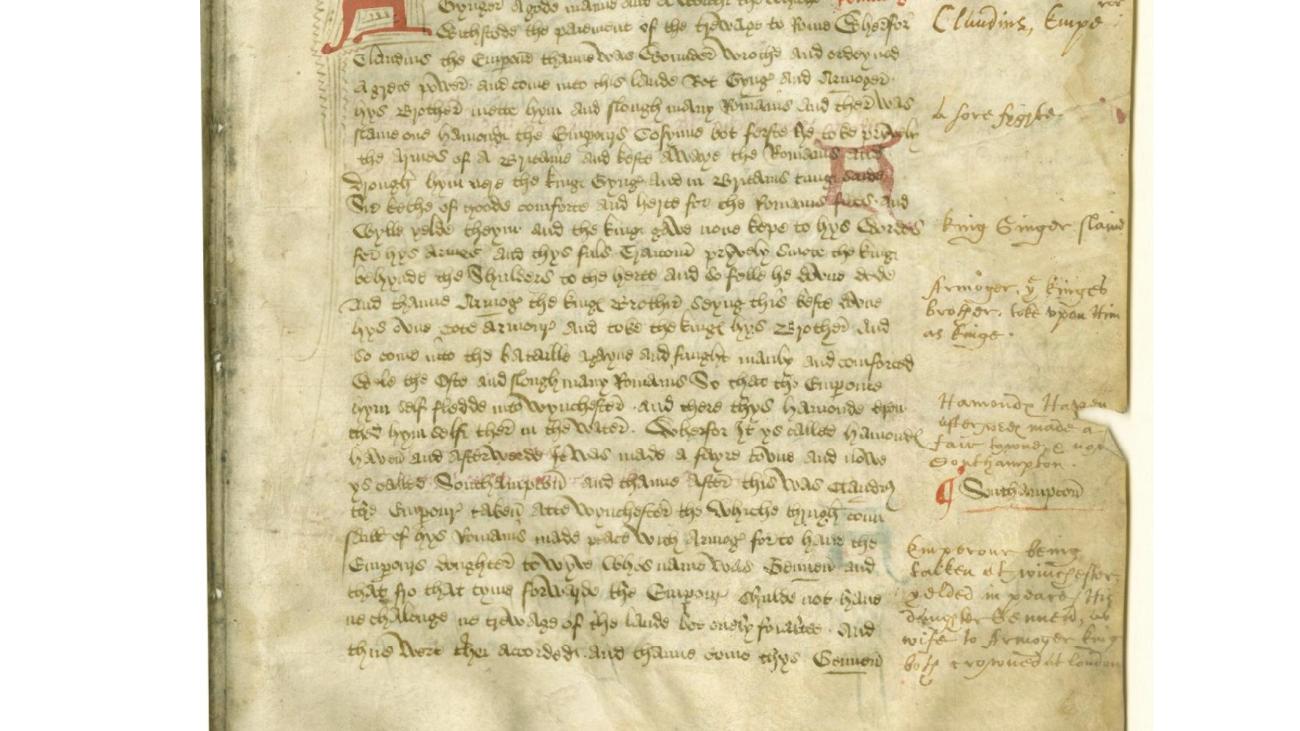A browseable directory of known copies of the Middle English Prose Brut chronicle

About this project
Introduction by Michelle Warren, Professor of Comparative Literature, Dartmouth College, and Neil Weijer, Curator of the Harold and Mary Jean Hanson Rare Book Collection, University of Florida
This project is a browseable directory of known copies of the Middle English Prose Brut chronicle, drawn from previous scholarly projects to describe and define the manuscript corpus. It contains links to projects, descriptions, and digital facsimiles of the manuscripts available on the web. A copy of the dataset is freely available for download and further experimentation.
During the later Middle Ages, the Middle English Prose Brut chronicle, commonly referred to as the Prose Brut, was possibly the most common source where a reader could learn about the history of England—from its legendary origins to the present dynasty. The Prose Brut survives in nearly two hundred manuscripts, compiled from the end of the fourteenth century on. This group of manuscripts has been the subject of extensive study for more than a century, as scholars and bibliographers have discovered new manuscripts and studied the Prose Brut’s relationship to other histories across a number of languages.
In the early 2000s, the multiyear digital humanities project “Imagining History: Perspectives on Late Medieval Vernacular Historiography” looked to put this information on the web in an open and expandable format. This most recent work has also been the most precarious. In 2017, the Imagining History Project’s data disappeared from the live internet. The handlist is the result of the project team's work to remix the project data and to combine it with digitally available materials about the remaining manuscripts of the Brut, where possible. Since the project’s authors do not have direct control over much of the information, the project also illustrates the many different ways that institutions preserve data about medieval manuscripts.
For more on the project’s aims and goals, see Michelle Warren and Neil Weijer, “Re-Imagining Digital Things: Sustainable Data in Medieval Manuscript Studies” Digital Philology (Spring 2021).
RIGHTS INFORMATION
Dartmouth College Library assigns a Creative Commons BY-NC license to the digital work and associated web site.

